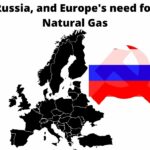The Nova Scotia provincial government is doing a review of fracking, and the Ecology Action Center just released a report for that review describing severe and costly impacts from fracking. “Fracking is such a new technology, with horizontal drilling and slickwater mixtures being developed only in the past decade. We are just starting to see some of the impacts in other areas and it is not looking good” stated Jennifer West, Geoscience Coordinator. “This report is the first comprehensive look at the potential impacts of fracking on Nova Scotia and makes a strong case that fracking will not promote economic development as promised or help us meet our energy and greenhouse gas targets.”
“This report explains how the energy industry has exaggerated their claims of the size of the resource. Resources of shale have recently been downgraded by 85% in the US and by 80% in Poland,” stated Energy Coordinator Catherine Abreu. “New estimates suggest there might only be 6 years of gas in the US at our current rates of consumption. And we want to use this technology here to get at the very last oil and gas resources in Nova Scotia? It’s not the way forward, it’s the way backward” she added.
Energy produced from shale is not a silver bullet for energy or jobs. There is growing evidence that any economic benefits of fracking are greatly outweighed by the costs of environmental degradation, which is often borne by municipalities and communities. The energy produced by shale gas through fracking is expensive, adds to global warming, does not correlate with jobs, and will not create energy independence.
Fracking contaminates our drinking water. Fracking uses large volumes of surface water, and is known to be associated with chemical and methane leaks that can impact drinking water resources. Since there is a widespread lack of baseline information about the quality and quantity of groundwater in Nova Scotia, it is unwise to commit to an industry that directly impacts our drinking water resources.
Fracking traffic damages rural roads. The large numbers of trucks for the large numbers of wells have a wide variety of impacts to local areas. Most significantly, industrial traffic associated with fracking would reduce public health and safety, tourism and property value, and increase municipal costs for road maintenance and repairs.
Fracking fragments landscapes. Because large numbers of wells are required to make fracking economical, industrial road systems are necessary. This process fragments the landscape and cuts off natural wildlife habitats which stresses vulnerable species, decreases biodiversity, and negatively impacts the forest products industry through forest loss. Fragmentation of the land caused by fracking would decrease wildlife and forest health, and restrict recreational hunting and fishing opportunities, as well as cultural practices in natural spaces.
Fracking isn’t good for farming. Where fracking occurs near farmland, large amounts of ozone and methane hamper plant productivity, and decrease livestock health. Water crises further impact farmers, forcing competition for water between agriculture and energy production and other users, in addition to water for residential use. Fracking would decrease the viability of food-related farming employment and the ability of farmers to produce food in these areas.
- Highway design could decrease death and injury risk, if “we” chose smarter designs - March 28, 2015
- GM really did trademark “range anxiety”, only later to abandon that mark - March 25, 2015
- US Government releases new regulations on hydraulic fracturing, that some call “toothless” - March 20, 2015
- Tesla Motors magic pill to solve range anxiety doesn’t quite instill range confidence - March 19, 2015
- Update on Galena IL oil train – 21 cars involved, which were the supposedly safer CP1232 design - March 7, 2015
- Another oil bomb train – why are they shipping crude oil by train? – Symptoms of fossil fuel addiction - March 6, 2015
- Chevron relinquishes fracking in Romania, as part of broader pull-out from Eastern European fracking operations - February 22, 2015
- Answer anti- electric car articles with truth and pride – truth outshines all distortions - February 19, 2015
- Apple taking big risk on developing a car? Please, Apple, don’t go there! - February 16, 2015
- Toyota, Nissan, Honda working on Japanese fuel cell infrastructure for Japanese government - February 12, 2015










